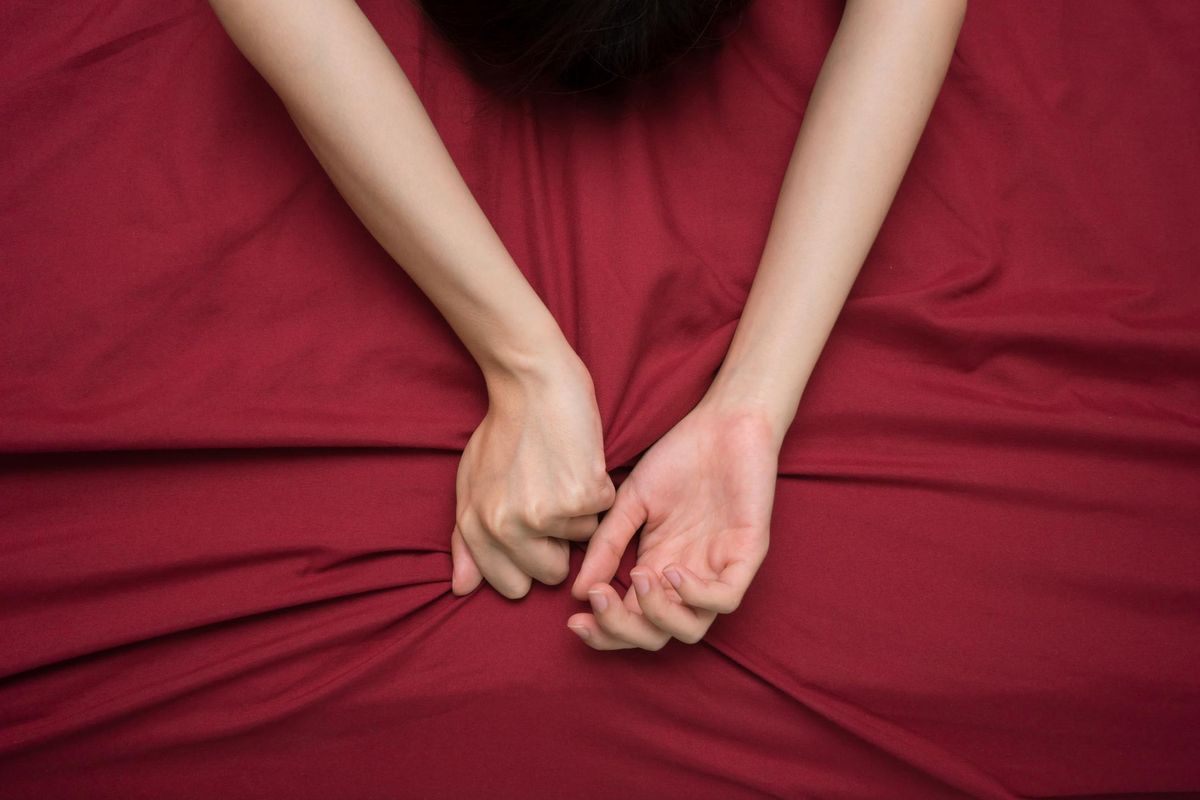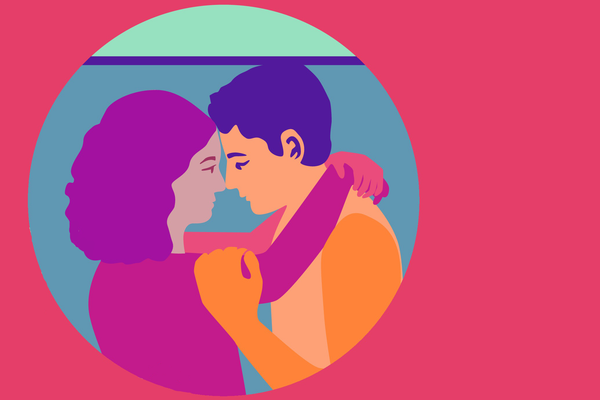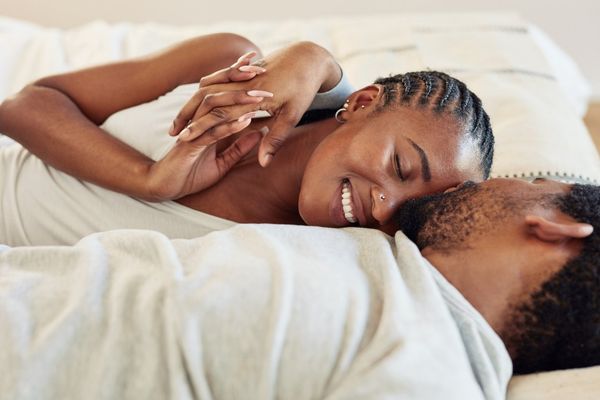Amy* enjoys being intimate with her husband, but she finds it difficult to have an orgasm when they're having sex.
She tends to get in her head a lot, which makes it hard for her to focus on the sensations she's feeling. When this happens, she gets fixated on having an orgasm and starts worrying about how long it may take, why she isn't climaxing sooner or that she won't have an orgasm at all.
"The more I think, the less I can relax," Amy said.
Sometimes, using a vibrator for clitoral stimulation can help Amy have an orgasm, but it's far from a guarantee, and Amy's challenges around orgasming weigh on her sexual self-esteem.
"When I don't orgasm, I feel like I am letting my husband down or making him feel like he's not doing enough to satisfy me," Amy said. "My partner orgasms nearly every time we have sex and he wants me to experience that pleasure, too. But it often just doesn't happen for me."
Amy is hardly alone. Research indicates that, for women, orgasms can be elusive; this is especially true for women in heterosexual relationships.
Lesbians have the most consistent orgasms
"Lesbian women experience orgasms about 75% of the time with their partner; bisexual woman experience orgasms about 58% of the time, and heterosexual women experience orgasms about 62% of the time," said Dr. Emily Jamea, a sex therapist.
There's no concrete answer as to why lesbians most consistently experience orgasms with one another, but Jamea reasons that it could be because women understand women's bodies better, and that there is perhaps less pressure to orgasm during intercourse.
"Most orgasms happen through clitoral stimulation," Jamea said. "And most women just get that."
This brings us to a key question: How many types of female orgasms are there?
Women may experience orgasm through a number of ways
Traditionally, female orgasms have been defined as vaginal and clitoral.
"As to the difference between those two, the jury is still out," Jamea said. "Some research suggests that there are different sets of nerve endings in the clitoris versus the vagina, but we also have to remember that the clitoral body goes deep inside — and is usually about 3 inches long, with two wing structures. So arguably, all orgasms could be clitoral."
Things get even murkier when considering that there are so many individual differences. Some women swear that there is an area of their vagina that has more sensation than the rest of the vaginal canal, constituting the storied "G-spot," while other women say they feel no difference.
What's more, there's growing research that there are more ways to orgasm than just through clitoral or vaginal stimulation.
"Some women may experience orgasm during nipple stimulation and anal play," Jamea said. "Some women have nocturnal orgasms after a sexy dream, and others can even think themselves into an orgasm."
10% of women have never had an orgasm
But there are some women who have never had an orgasm of any variety.
"One consistent finding is that about 10% of women report never orgasming in their lifetime," said Dr. Laurie Mintz, a sex therapist.
Why do the vast majority of women orgasm but some don't?
Barring medical conditions such as chronic pain disorders or the usage of SSRIs (both of which can inhibit a woman's ability to orgasm), lack of orgasm can come down to a number of factors, including culture and the distorted value we place on intercourse between a man and a woman.
Culture and psychology fuel the orgasm gap
"Culture is a huge reason behind why women may not orgasm," said Mintz. "We know that there is a massive orgasm gap between men and women and that women are having fewer orgasms than men in all types of contexts. A lot of that is due to the way we talk about heterosexual sex and how societally we paint a picture that intercourse is the most important thing."
In fact, as Jamea notes, only 21% to 30% of women orgasm through intercourse without simultaneous clitoral stimulation.
Another major reason women may never orgasm may come down to psychological stressors and even environmental factors.
"You aren't going to be able to run as fast on a hot day as you can on a cool, clear day," Jamea said. "It's the same with orgasms. You may not orgasm as easily when stressed out or when you're in an uncomfortable environment. There is such a strong mind-body connection and anything going on that affects our context can improve or inhibit climax — and women tend to be more sensitive to these factors."
Also falling under the bracket of psychological roadblocks are a sense of feeling rushed to climax along with — or as quickly as — your male partner, which is quite the physiological challenge.
"Men usually orgasm within the first five to ten minutes of rapid stimulation," Jamea said. "Women may take upwards of 30 minutes to get there. So, a lot of women who have never had an orgasm may simply have not given themselves enough time."
Yet another more complicated roadblock in the way of achieving orgasm is past trauma.
"Trauma causes a dissociative response, which means the mind and body become disconnected," Jamea said. "In situations where vulnerability and trust are necessary, fear can take over, resulting in a similar dissociative response. In other words, it can result in someone freezing up."
Not having an orgasm can lead to guilt and low self-esteem
Some women, like Amy, feel guilt and other negative emotions about not being able to consistently orgasm, which is totally normal, albeit distressing.
"[Negative emotions] are a definite problem for many women who don't orgasm," Mintz said. "A lot of it comes down to feeling like they're not normal, or that they're flawed or broken. This can lead to low self-esteem, shame and the avoidance of sex."
Masturbation is the best treatment for lack of orgasm
Both Mintz and Jamea champion masturbation with an open, patient mind as the ultimate treatment for women who have never had an orgasm, or have trouble orgasming.
"Experiment with your own touch, with what feels good to you and try out different toys," Jamea said. "Vibrators can do wonders."
Mindfulness techniques can also help get you in tune with your body and help quiet the chatter of the mind that can intensify when you're fixated on having an orgasm, or worried that you're taking too long. Anxious thoughts can be particularly intense when you're with a partner.
"Do I look good, smell good, taste good?" Mintz said of some of the many questions that may flood our minds during sex. "You can't orgasm when you're thinking so hard."
Most of all, it's important to recognize that you aren't having an orgasm for anyone but yourself. Own it and don't judge it. Let it happen without trying to control it.
"This is your orgasm, not anybody else's," Jamea said. It's in your hands."
*Amy is not her real name
- The Science Behind Orgasms: What's Going On When You're ... ›
- Orgasm Much? - HealthyWomen ›
- Defining Orgasm - HealthyWomen ›
- Sex Toys Helped Me Discover the Beauty & Pleasure of Self-Love - HealthyWomen ›
- Female Orgasm - HealthyWomen ›
- Sabrina Johnson Talks Female Sexual Arousal Disorder - HealthyWomen ›







